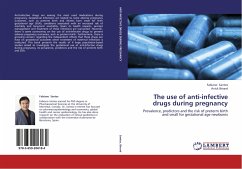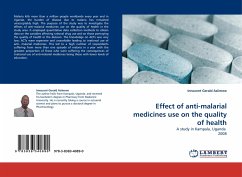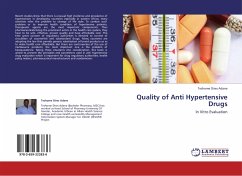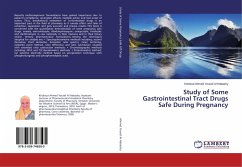
The use of anti-infective drugs during pregnancy
Prevalence, predictors and the risk of preterm birth and small for gestational age newborns
Versandkostenfrei!
Versandfertig in 6-10 Tagen
52,99 €
inkl. MwSt.

PAYBACK Punkte
26 °P sammeln!
Anti-infective drugs are among the most used medications during pregnancy. Gestational infections are related to some adverse pregnancy outcomes, such as preterm birth and infants born small for their gestational age (SGA), conditions associated with an increased risk of mortality and long-term morbidity. Given its health impacts, prompt management and treatment of these infections are warranted. However, there is some controversy on the use of anti-infective drugs to prevent adverse pregnancy outcomes, such as preterm birth. Furthermore, there is growing concern regarding the independent effe...
Anti-infective drugs are among the most used medications during pregnancy. Gestational infections are related to some adverse pregnancy outcomes, such as preterm birth and infants born small for their gestational age (SGA), conditions associated with an increased risk of mortality and long-term morbidity. Given its health impacts, prompt management and treatment of these infections are warranted. However, there is some controversy on the use of anti-infective drugs to prevent adverse pregnancy outcomes, such as preterm birth. Furthermore, there is growing concern regarding the independent effects that these drugs can have on gestational outcomes when treatment of maternal infections is instituted. This book presents the results of 4 large population-based studies aimed to investigate the gestational use of anti-infective drugs during pregnancy, its prevalence, predictors and the risk of preterm birth and SGA.












